Nagaoka University of Technology is appointed as United Nations Academic Impact SDG 9 Hub University (Leading University). As the only one SDG9 Hub university in the world, they have been promoting education and research-oriented at achieving all the goals, centering on Goal9 (Build resilient infrastructure, promote inclusive and sustainable industrialization, and foster innovation.). They also have been promoting social contribution activities oriented at achieving the SDGs by creating opportunities for people to become familiar with the SDGs through SDG games and lectures, raising awareness of the SDGs in local communities, and spreading awareness of the SDGs as issues directly related to our own lives.
In this Sakura Science Program, we are fortunate to be lectured by the leading professors at NUT about the challenge in the field of Life technology / Bioengineering field to achieve SDG9. Due to the Covid-19, the program was held online; nevertheless, it was well-designed and organized to make sure that all the attendees have a thorough understanding of the lessons and the practical applications of the knowledge. The course spanned six weeks; in each week, we are educated about a lesson concerning achieving one of the Sustainable Development Goals. Not only that, we also had the chance to exchange conversations and culture with Japanese students at the university and Vietnamese students who studied abroad there.
In the first week, we learnt about cell engineering, which is a growing field within biomedical engineering. The most exciting part of the class to us was the discussion of the science and the non-technical aspects of this cutting-edge technology. The second lesson was microbial engineering. We were introduced about the NUT’s research on the technology of microbial screening by droplet microfluidics, which is an alternative of the traditional screening and isolation method, and the characteristics and application of the small living organisms around me, for example, the mechanism of lipid synthesis of Oleaginous yeast and its application into creating high value lipids such as omega-3 from lignocellulose biomass sources. In another lesson about wildlife management, the associate professor gave a lecture on the importance of biodiversity by using intriguing concepts and examples. During the course, we also conducted a PCR experiment using Takara PCR reagent with the original application.
All in all, we are grateful for Sakura Science Program for giving us this opportunity of experiencing life and study at Nagaoka University of Technology. We would like to express our deepest thanks to the professors and associate professors for your thoughtful preparation and enthusiastic teaching. We would also like to sincerely thank the interpreters and the students for supporting the lecture’s delivery process.
Closing day
On the last day of the Sakura Science Program, we went on an online Tour at biomass plastics maker: Biomass Resin Minamiuonuma Co., Ltd. They develop biomass plastics from rice grains and discarded foodstuffs. Products using these materials, such as trash bags, shopping bags, cutlery (plastic utensils), and toys are now being distributed and sold in the market. This is a sustainable business model that successfully transforms technological inventions into products and services operating concerning the harmony of the environment and social commitment. Through the experience, we learnt much about how the company is operated, their cutting-edge technology and their mission in achieving sustainable development goals.
We would like to express our special thanks to VNUA, Faculty of Biotechnology, Nagaoka University of Technology, particularly to all sensei and organizers of this program for their great support to students. Thank you so much and Happy New Lunar New Year 2022.
Some pictures:
|
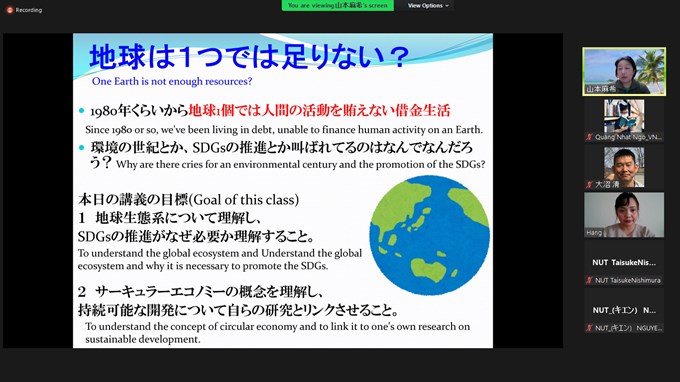 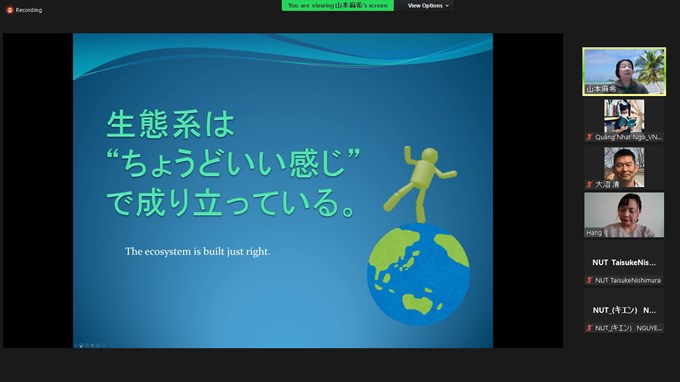
Ms. Maki Yamamoto introduced the lesson
|
|
 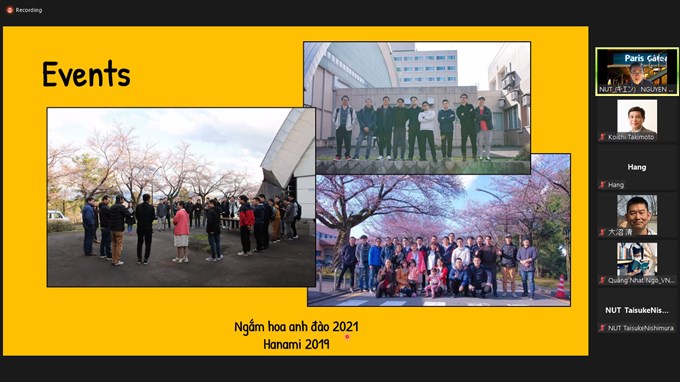
Vnua students at NUT introduce their activities
|
|
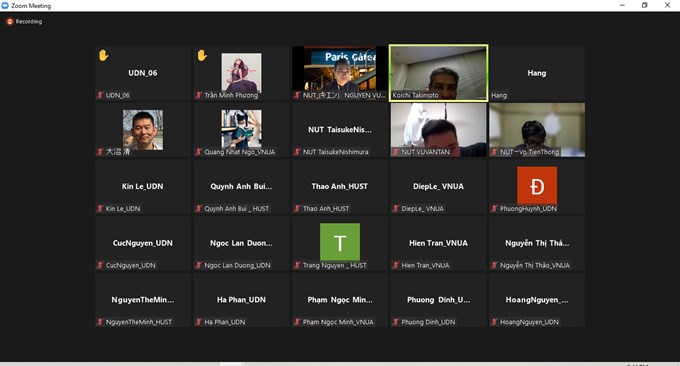 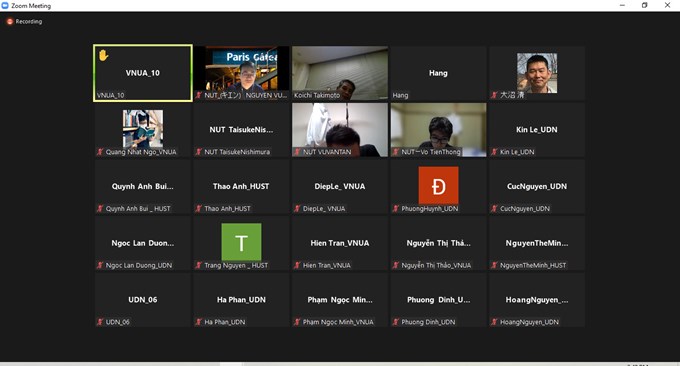
Students ask questions
|
Student Ha Hai Yen – CNSHE-K65